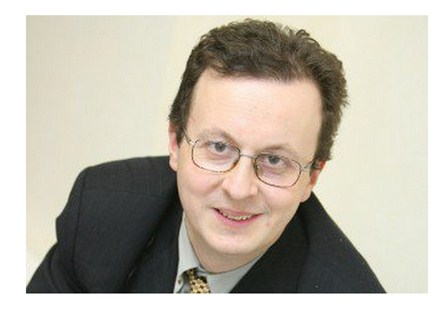
Published 25-09-2012, 07:26
Dmitry Babich
political analyst for the Voice of Russia radio station
The French police is on high alert as Paris is nervously awaiting the consequences of a ban imposed on a planned Moslem rally at Trocadero square. The rally was due to take place on Saturday. The French prime minister, Jean-Marc Ayrault, took the trouble of announcing the ban personally.
The police made a special announcement that the rally’s organizer, identified as K., would face a fine of 7500 euros or a prison term of six months. K. is the person who placed a formal request with the city authorities, notifying them of his intention to hold "a peaceful rally of French Muslims protesting provocations against Islam and its prophet.” So much for the "freedom of assembly,” which the French media and some politicians have been lecturing Russia on during the last 6 months, especially after the law on penalties for organizers of illegal rallies was adopted by the State Duma this summer.
Major discussion on limits to freedom to demonstrate, which swept France in the wake of the recent publication of cartoons mocking prophet Mohammed in one of the country’s magazines, Charlie Hebdo, exposed frictions inside French society. But even more vividly, it exposed a double standard that the French media and intellectuals apply to religious freedom and freedom of expression at home and in other countries.
So, after all the talk in French papers about Russia’s "restrictive” new legislation that – for the first time in Russia’s post-Soviet history - established serious fines for organizing illegal rallies or breaking public order during organized ones, the French authorities banned two rallies in a row. (The one near the American embassy, protesting the "Innocence of Moslems” video several days ago was the first one to be banned.)
"If indeed the French authorities banned a rally which announced itself as a peaceful one, then their stand on the matter is certainly hypocritical,” said Andrew March, a scholar on liberalism and religious freedoms at the Yale University in the US.
Official Paris, which has been so fond of supporting provocative forms of self-expression in Russia and other countries of the former Soviet Union, suddenly lost all sense of humor when facing the consequences of such provocations on its own turf. The French leaders, including the president and his ministers, criticized the publication of cartoons in Charlie-Hebdo. The city was not very inspired by the provocative action of the Ukrainian "feminist” group Femen, whose members marched bare-breasted through the Moslem quarters of Paris. What would be called "legitimate political action” by them in Moscow, looked much more sisnister on the same day as the French police was protecting the American embassy from a possible violent attack.
The French daily "Liberation,” which just recently titled its story about Femen as "Breasts are Bare, but Heads are High,” is now reporting the concerns expressed by police about "unneeded provocations” in a city, where hundreds of "experts on public order” are awaiting flash-mobs of aggressive Islamists organized with the use of Twitter or Facebook.
The country, which has not yet fully recovered from the shock caused by recent shootout in the city of Toulouse, where a sympathizer of Al-Qaeda killed several military people and Jewish schoolchildren, suddenly discovered that it had little appetite for provocations like the ones tried by Femen, Pussy Riot and their likes.
Manuel Valls, the interior minister in the government formed by the newly elected leftist president Francois Hollande, is scoring political points on his pledge to improve the security situation in the country, quickly forgetting his Socialist party’s criticism of the former president Nicolas Sarcozy for his "racist” or "disciplinarian” attitudes. The polls are already putting Mr. Valls’ popularity ahead of that of the new president Francois Hollande. And it is quite clear that this popularity was not gained through excessive support for assembly rights or other "values,” whose absence in Russia and Ukraine Mr. Hollande and Mr. Valls have been bemoaning to the point of personally boycotting the recent Euro-2012 football tournament in Ukraine. What happens to these defenders of freedom at home? Why are they suddenly turning into disciplinarians?



.jpg/250px-ElbeDay1945_(NARA_ww2-121).jpg)





